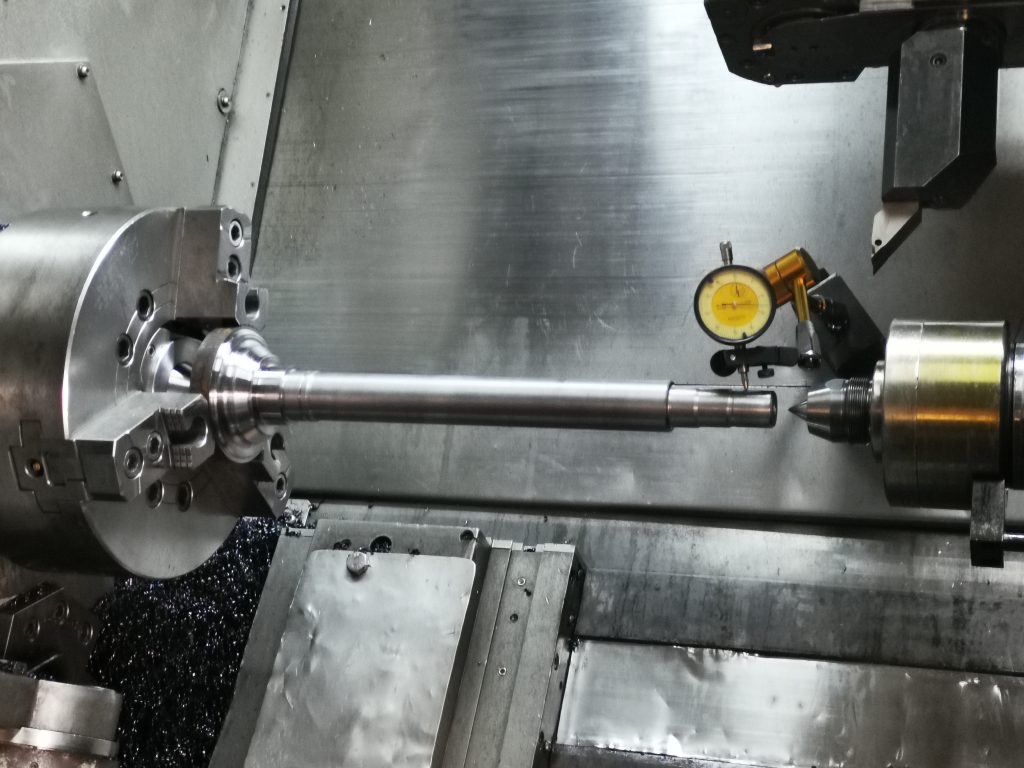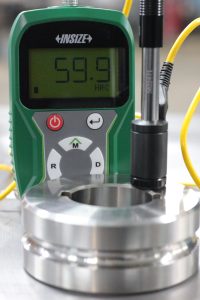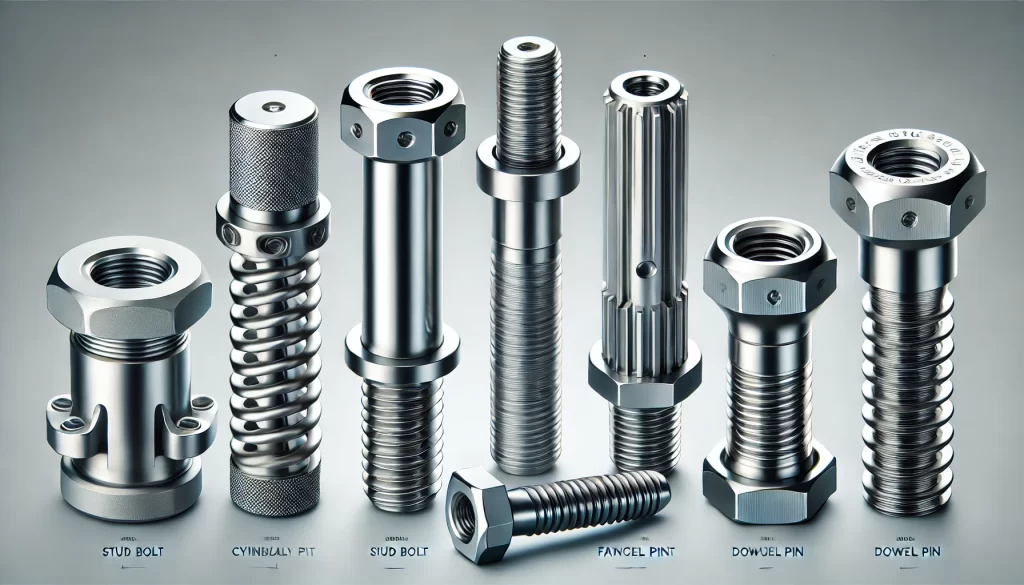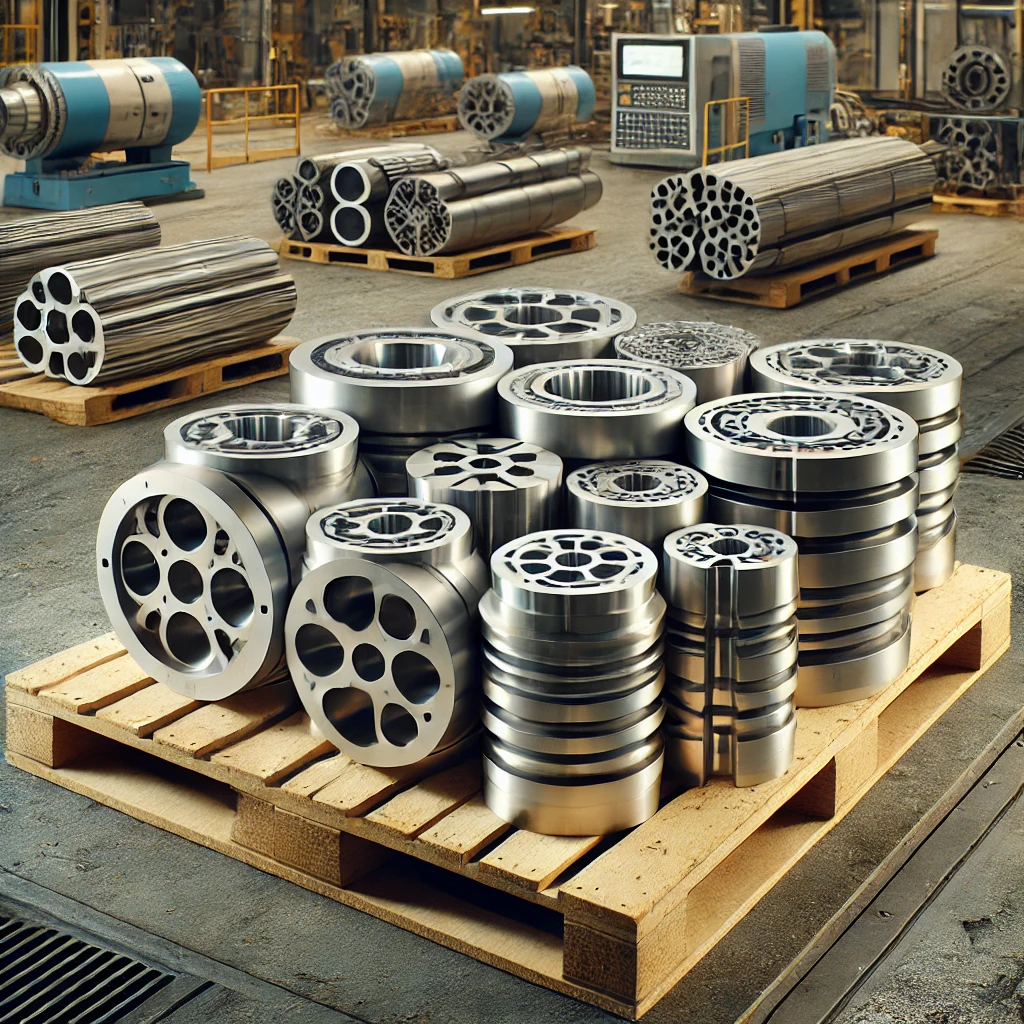Today, construction machines are indispensable equipment for demanding sectors such as construction, mining and agriculture. In order for these machines to work efficiently and long-lasting, the parts used must be of high quality and durable. The production of parts used in construction machinery is generally CNC machining is realised with This method is superior in terms of both precision and reliability.
In this article, we will examine in detail the material types and hardness values used in the production of construction machinery parts.
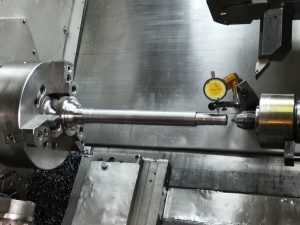
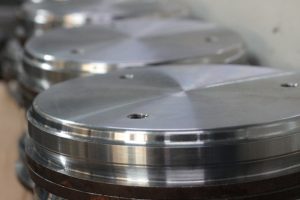
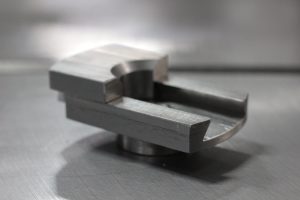
Material Types and Properties Used in CNC Manufacturing
The choice of material in the production of work machine parts is a decisive factor in the performance and life of the part. The following material types are generally preferred for CNC machining:
1. Carbon Steels (C45, CK45, etc.)
- Features: It offers high strength, wear resistance and impact resistance. Heat treatment is usually applied to increase hardness.
- Areas of Use: Shafts, gears, fasteners, hydraulic cylinder components.
- Hardness Values: Usually in the range of 45-55 HRC after heat treatment.
2. Alloy Steels (42CrMo4, 16MnCr5, etc.)
- Features: It is used in heavy load bearing parts with its high tensile strength, hardness and toughness properties.
- Areas of Use: Crankshafts, heavy load bearing gears and digger arm connections.
- Hardness Values: Mostly between 55-60 HRC, hardness can be adjusted according to requirement.
3. Stainless Steels (AISI 304, 316, 420)
- Features: It has high corrosion resistance and provides long life in humid or chemical environments.
- Areas of Use: Hydraulic system components, bolts and outdoor applications.
- Hardness Values: 30-45 HRC range, low hardness but high strength.
4. Aluminium Alloys (7075, 6061, etc.)
- Features: Offers light weight and easy workability. Supported by surface treatments to provide strength and durability.
- Areas of Use: Light moving parts, mechanical fasteners.
- Hardness Values: 80-120 HV (Vickers), generally low hardness but characterised by its lightness.
5. Titanium Alloys (Ti-6Al-4V)
- Features: It offers high strength, light weight and corrosion resistance. It works without deformation even in harsh conditions.
- Areas of Use: Special purpose digger arms, high performance fasteners.
- Hardness Values: 30-40 HRC, may be higher in some applications.
6. Polymer and Composite Materials (Delrin, PEEK)
- Features: In addition to being wear-resistant and lightweight, they have a low coefficient of friction.
- Areas of Use: Bearings, rollers and corrosion resistant parts.
- Hardness Values: Its hardness is usually measured on the Shore D scale, between 80-90 Shore D.
Hardness Tests of Materials
The following methods are generally used for hardness control of CNC machined parts:
- Rockwell Test (HRC): Suitable for hard steel and alloys.
- Brinell Test (HB): It is applied to large and rough surfaces.
- Vickers Test (HV): Used for fine and precise measurements.
These tests verify the mechanical properties of the materials and ensure the suitability of the machine parts for the harsh operating conditions.
Importance of Hardness and Durability in CNC Manufacturing
The hardness of work machine parts determines their properties such as wear and impact resistance. In the CNC machining process, the following processes can be applied to increase hardness:
- Heat Treatment: Tensile strength is strengthened by increasing hardness.
- Nitration and Carbonisation: The surface hardness of the parts is increased and wear resistance is provided.
- Coating Operations: Methods such as galvanising and phosphating that increase corrosion resistance are preferred.

CNC Produced Parts and Brief Information on Construction Machinery
CNC machining is one of the most effective methods used to produce critical components of construction machinery. The parts used in construction machinery must have features such as heavy load carrying, resistance to harsh environmental conditions and long life. Here are the work machine parts produced with CNC technology and their short descriptions:
1. Perno (Pin)
- Area of Use: It is used for fixing moving parts at the connection points of construction machines.
- Features: It offers high durability and wear resistance. It is usually manufactured from carbon steels and hardened by heat treatment.
- Typical Material: C45, 42CrMo4.
- Hardness Value: 45-55 HRC.
2. Hydraulic Cylinder Rods
- Area of Use: They are the moving components of hydraulic systems in excavators, loaders and cranes.
- Features: Smooth surface quality and corrosion resistance are important. Chrome plating is applied after machining.
- Typical Material: 42CrMo4 or stainless steel (AISI 420).
- Hardness Value: 50-60 HRC.
3. Shafts (Shafts)
- Area of Use: Parts that provide rotational movement and transfer power between gears and bearings.
- Features: It has high strength and impact resistance. Precision machined with machining.
- Typical Material: C45, 16MnCr5.
- Hardness Value: 40-50 HRC, 60 HRC after nitriding in some applications.
4. Gears
- Area of Use: It is used for power and torque transmission in moving mechanisms of construction machinery.
- Features: It requires high wear resistance and quiet operation. CNC machined in precise dimensions.
- Typical Material: 42CrMo4, 16MnCr5.
- Hardness Value: Surface hardness usually 55-60 HRC.
5. Crank Shafts
- Area of Use: A critical part in engine components that converts piston movement into rotational movement.
- Features: It has high strength and fatigue resistance. Grinding is applied after machining.
- Typical Material: 42CrMo4, 4140 steel.
- Hardness Value: 50-55 HRC.
6. Arm and Joint Components
- Area of Use: In excavator and loader arms, it forms the moving parts of the joint points.
- Features: It is impact resistant and resistant to deformation. Precision machined on CNC machines.
- Typical Material: C45, S355 steel.
- Hardness Value: 45-50 HRC.
7. Bearing Housings
- Area of Use: It ensures smooth and silent transmission of rotary movements.
- Features: It must be abrasion resistant and machined to precise dimensions.
- Typical Material: Stainless steel (AISI 420) or carbon steels.
- Hardness Value: 50-60 HRC.
8. Hydraulic Valve Bodies
- Area of Use: They are system components that ensure the correct orientation of hydraulic fluids.
- Features: It has precise hole dimensions and sealing properties.
- Typical Material: Cast iron, aluminium alloys.
- Hardness Value: Usually 30-40 HRC.
9. Digger Bucket Teeth
- Area of Use: It is used for scraping material in the digger parts of excavators and loaders.
- Features: It has high wear resistance.
- Typical Material: Manganese steel (Hadfield steel).
- Hardness Value: Surface hardness is usually above 50 HRC.
10. Wheel Hubs and Axles
- Area of Use: They are wheel components that provide the movement of construction machinery.
- Features: It must have high strength and load carrying capacity.
- Typical Material: 42CrMo4, 4140.
- Hardness Value: 40-50 HRC.
The Role of CNC Manufacturing in Construction Machinery Parts
CNC machining enables the production of work machine parts with high precision. Millimetre precision, repeatability and material efficiency It is one of the prominent advantages of CNC technology. In addition, this method offers a customisable manufacturing process to meet specific design requirements. In terms of hardness, durability and quality, parts produced with CNC machines easily adapt to demanding industrial applications.
This information enables you to understand the importance of CNC technology in the construction machinery sector and the details of the parts produced with this technology. Especially for manufacturers, material selection and hardness values play a decisive role in the performance and life of the parts.
Conclusion
Construction machines must have high standards in terms of reliability and durability in harsh working conditions. CNC machining improves the performance of construction machines by meeting these standards with the right material selection and hardness values. Various materials such as steel, aluminium, titanium and polymers are specially machined and customised for different application areas. Quality control is ensured by hardness tests, producing long-lasting and reliable parts.

